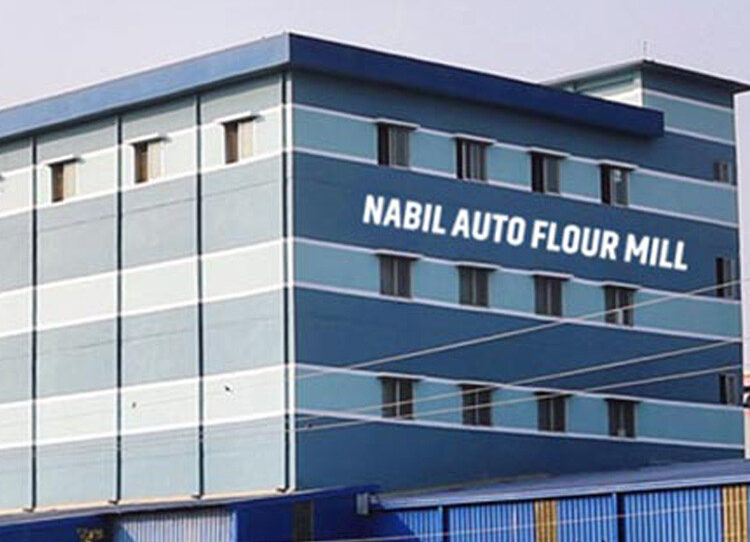Flour is often derived from the milling of wheat, maize, rye, barley, or rice. As the principal element of bread, a basic staple in many cuisines, it is considered one of the most prevalent ingredients worldwide. White flour, known as plain or all-purpose flour, constitutes roughly 75 percent of the wheat grain, with most of the bran and wheat germ eliminated. The whole wheat grain is used to make wholemeal flour.
One hundred seventy-one million people in South Asian countries have a habit of eating more “roti” (flatbread made from wheat flour. More people are buying baked goods because the middle class is growing, and the biscuit, noodle, and pasta industries are using a lot of wheat flour because they are growing. The Foreign Agricultural Service (FAS) of the US Department of Agriculture says that wheat flour is used for many things in Bangladesh, including in homes, restaurants, bakers, and the food industry. Flour is clearly the second most significant staple food in Bangladesh after rice. It may also be regarded as a quintessential food in our nation. Staple foods constitute the fundamental element of our diet. Analysis of our daily diet reveals that flour is the second most consumed item, following rice. The environment, culture, trade, and production are the principal determinants of a nation’s staple foods. Following the need for flour products, the Nabil group of industries established auto flour mills. In 2014, it started production of flour-based food. Nabil group authenticated the automatic flour mill.
There are numerous uses of flour in Bangladesh. It is commonly employed for cakes, pastries, and biscuits. In cake preparation, it is combined with a leavening agent, such as baking powder or sodium bicarbonate. It is also employed in quick breads like soda bread, yielding a denser textured loaf. White flour is generally subjected to chemical bleaching, yet an unbleached alternative, characterized by an off-white color, is accessible to those who like it. A special grade of finely ground wheat flour that looks like all-purpose flour but is perfect for making thin pasta or noodles. Some cooks also use” 00″ flour to make pizza bases. As the use of flour-induced products is growing, to facilitate the production of flour-related goods,
The Nabil Group of Industries decided to expand its flour mills.
They developed an additional unit for flour mills to enhance the expansion of their flour food-related sector in 2018. They want to elevate these food grain-related items to a new level. Consequently, it was in 2021 that Nabil Dal Mill and Nabil Naba Foods commenced their operations as part of the Nabil Group of Industries. The widely recognized consumer brand “Foodela” was established and reached every corner of our country.
Nabil group has been running its flour-related food production using automatic flour mills as it has many advantages to using an automatic flour mill, which changes the way flour is usually ground. These high-tech gadgets make things faster and more accurate, and they have many other benefits for both home and business use. Automatic flour mills make sure that the flour is ground evenly and finely, which improves the quality of the flour as a whole. Automatic flour mills don’t make as much heat when they grind the grains as traditional mills do, so the nutrients in the grains stay the same. It is always possible for these mills to make good flour while following environmentally friendly methods. Because of this, the Nabil group started to build automatic flour mills, taking advantage of their benefits and adding to Bangladesh’s food grains business. This year, Nabil Cold Storage was also built to keep food fresh.
Their future objective is to facilitate the production of flour-related products systematically and soundly, and they want to reach every corner of our country. They are working on flour production levels, aiming to give flour-related goods to consumers at reasonable price ranges so that middle-class and lower-middle-class people can easily afford that product. This is how the Nabil group contributed gradually to flour-related food sectors in Bangladesh. Following the process, it became widely acknowledged for its flour production system in Bangladesh. The way Nabil Group has turned into a notable commercial company is immeasurable for business companies.
Nabil group wants to contribute to our nation’s economy through their systematic way of production of consumer goods. United Nations has designated Bangladesh as a lower-middle income country, and our country is currently on pace to erase its status as one of the Least Developed Countries. The majority of a nation’s economic activity is driven by its numerous businesses. In addition to fostering equitable development and the creation of employment opportunities, the success of companies may be a driving force behind national advancement. Nabil Group is committed to promoting Bangladesh’s growth through commerce. According to recent reports, it is currently one of the companies in the food-commodity market in Bangladesh that is expanding at the fastest rate. Nabil Group deserves a great deal of praise for the contribution it has made to the improvement of Bangladesh’s economy.


